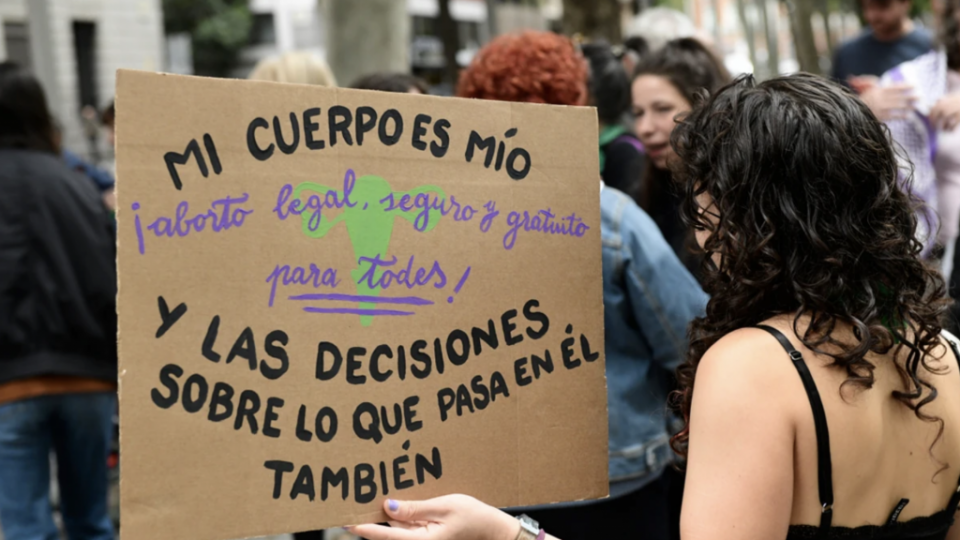Spain’s left-leaning coalition government said on Friday that it will seek to enshrine abortion rights in the Spanish Constitution, following uproar over a controversial decision by Madrid City Council to promote information about a so-called ‘post-abortion syndrome’.
The dispute began on Tuesday when the Madrid council, led by the right-wing People’s Party (PP), backed a far-right Vox motion requiring health services to warn women seeking abortions about this alleged condition.
According to the proposal, the supposed syndrome could result in substance abuse, suicidal thoughts and a higher cancer risk. It further claimed such information was being ‘deliberately hidden’ and described abortion as ‘big business’ driven by feminist ideology.
Initially, the PP defended the measure. But after mounting criticism, Madrid’s PP mayor José Luis Martínez Almeida conceded on Thursday that post-abortion syndrome is not a ‘recognised scientific category’. He added that informing women about it would not be compulsory.
On Friday, socialist (PSOE) Prime Minister Pedro Sánchez accused the PP on X (see below) of having ‘decided to merge with the far right’ and said his government would put forward a parliamentary initiative to constitutionally safeguard abortion rights.
‘The PP has decided to merge with the far right – that’s their choice,’ Sánchez wrote. ‘They can do it. But not at the expense of women’s freedoms and rights. For that reason, we are going to prevent the provision of misleading or anti-scientific information about abortion, by reforming the Royal Decree and bring to Parliament a proposal to constitutionalise the right to voluntary termination of pregnancy, in line with the jurisprudence of the Constitutional Court. With this Government, on social rights, not one step back.’
Amending Spain’s Constitution, however, is a difficult process. It requires approval from three-fifths of lawmakers, meaning Sánchez would need backing from parts of the right-wing opposition.
Spain first decriminalised abortion in 1985 under limited circumstances: rape, fetal malformation, or serious risk to the mother’s health. In 2010, the law was expanded to allow abortion on request up to 14 weeks into pregnancy.
Despite these legal provisions, many women still face hurdles, as significant numbers of public-sector doctors refuse to perform the procedure. ALSO READ: Spain’s Sumar group aims to protect the right to an abortion in the constitution.
France last year became the first nation to explicitly protect the right to abortion in its constitution. ALSO READ: Spain approves new laws on menstrual leave, abortion and transgender rights.
Subscribe to the Weekly Newsletter from Spain in English.
El PP ha decidido fundirse con la ultraderecha. Allá ellos. Pueden hacerlo. Pero no a costa de las libertades y los derechos de las mujeres. Por eso, vamos a:
— Pedro Sánchez (@sanchezcastejon) October 3, 2025
1️⃣ Impedir que se proporcione información engañosa o contraria a la ciencia sobre el aborto, reformando el Real Decreto…
🔴 El Gobierno propone incluir el derecho al aborto en la Constitución
— Onda Cero (@OndaCero_es) October 3, 2025
Se produce después de que el Ayuntamiento de Madrid aprobase una iniciativa de Vox para dar información sobre el ‘síndrome postaborto’ a mujeres que quieran interrumpir su embarazo 👇🏻https://t.co/tbUUjN8gtJ
#ÚLTIMAHORA | El Gobierno propone una reforma de la Constitución para incluir el aborto como un derecho. pic.twitter.com/pqH59RVKyJ
— EFE Noticias (@EFEnoticias) October 3, 2025
Click here to get your business activity or services listed on our DIRECTORY.


